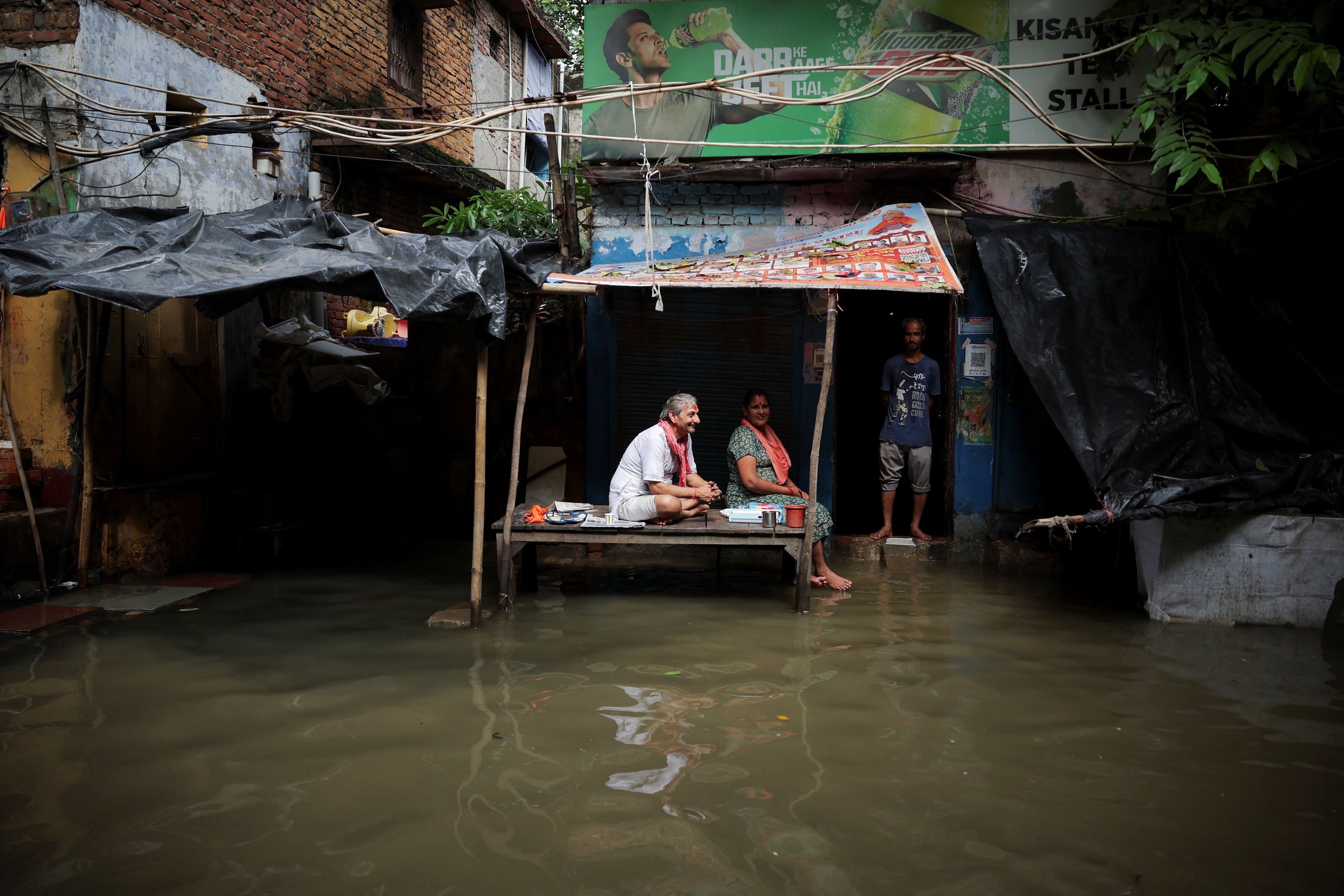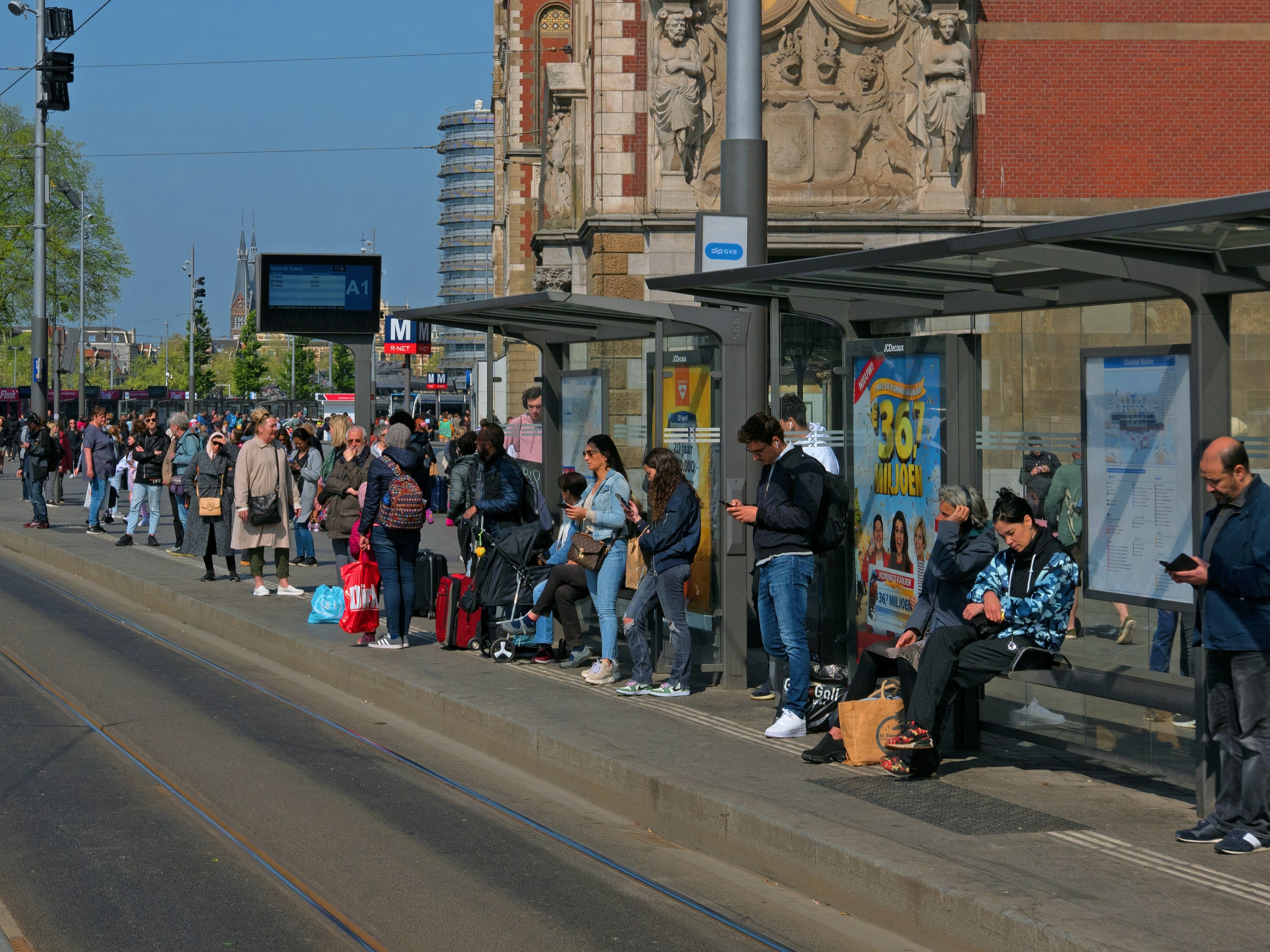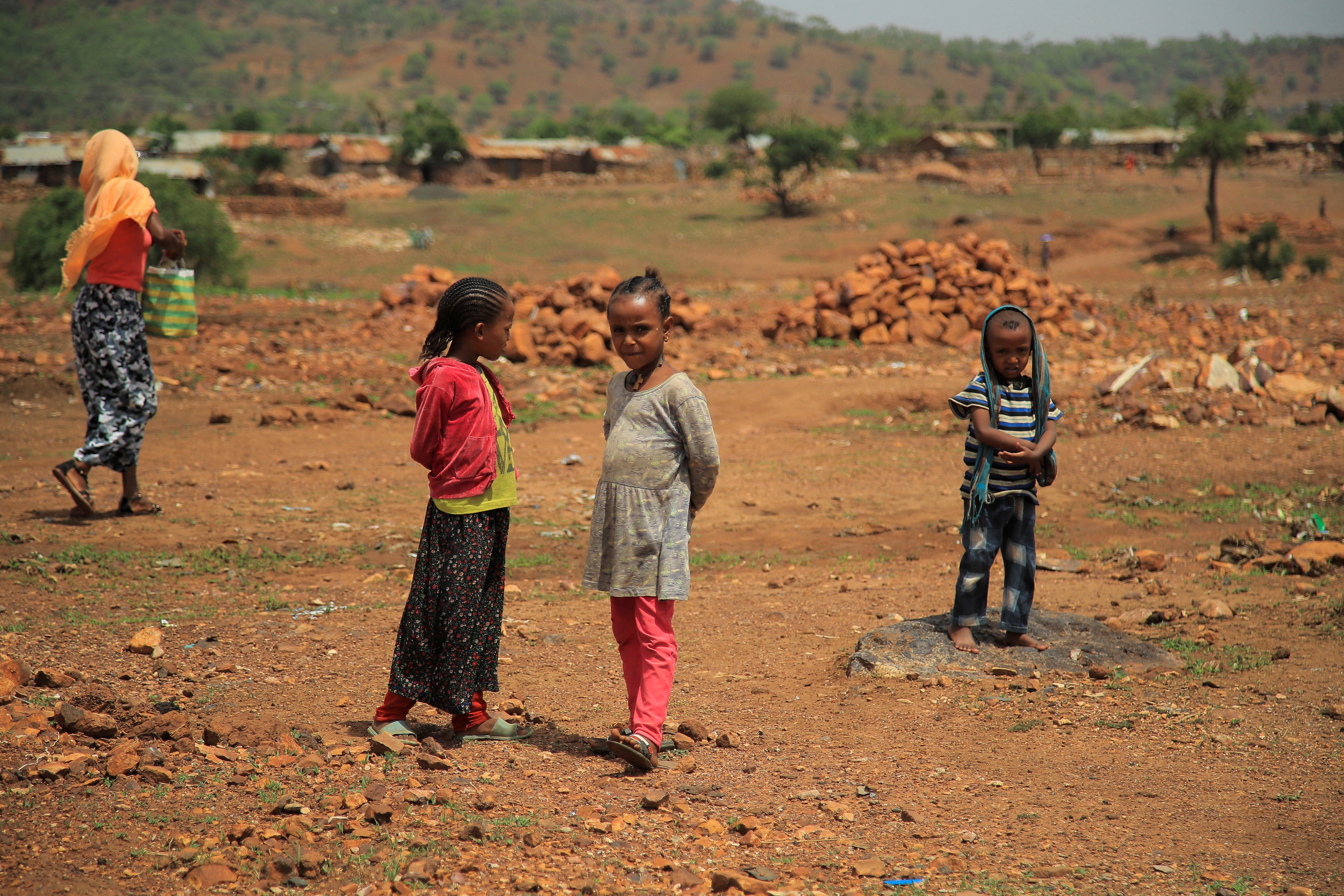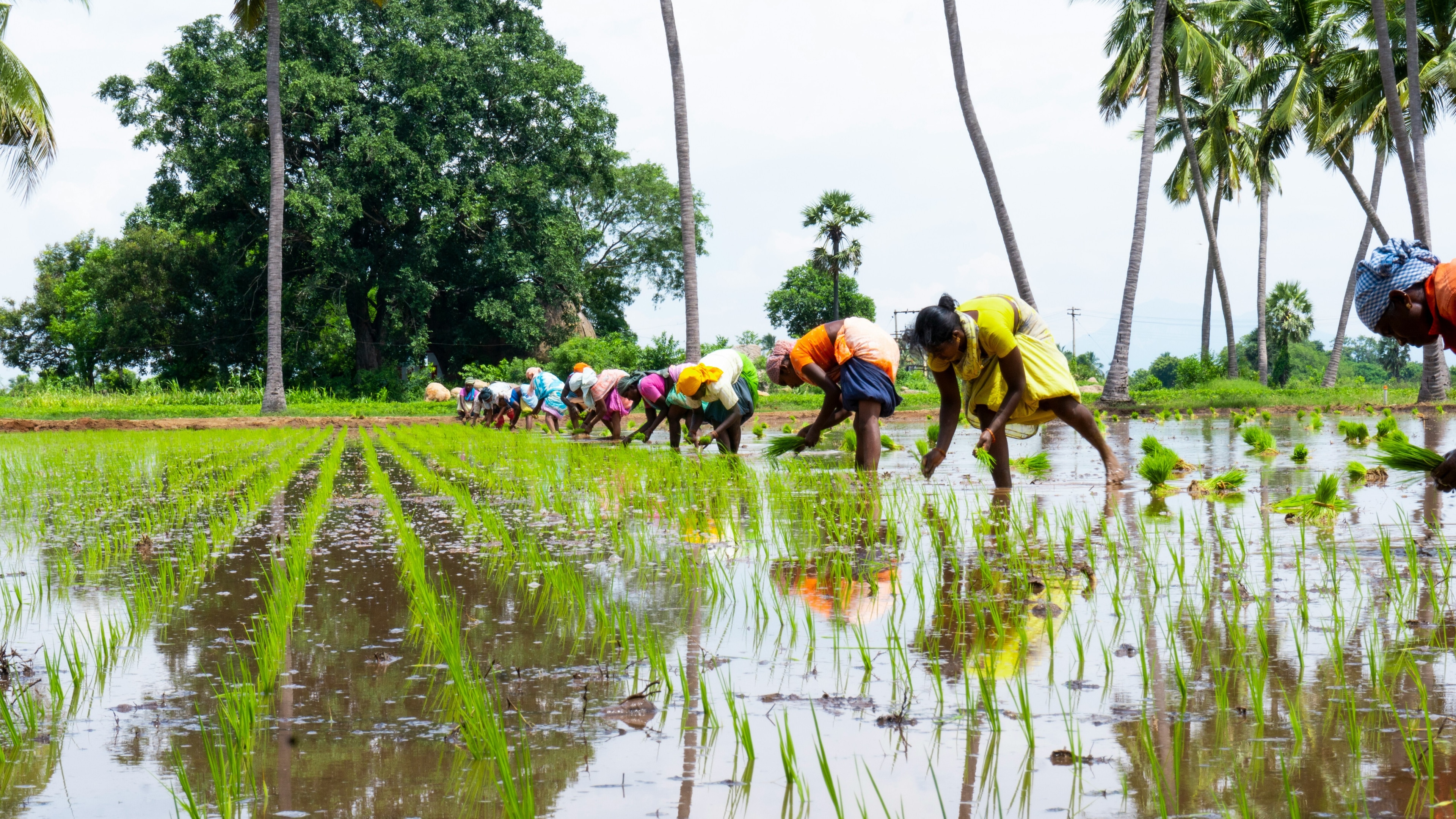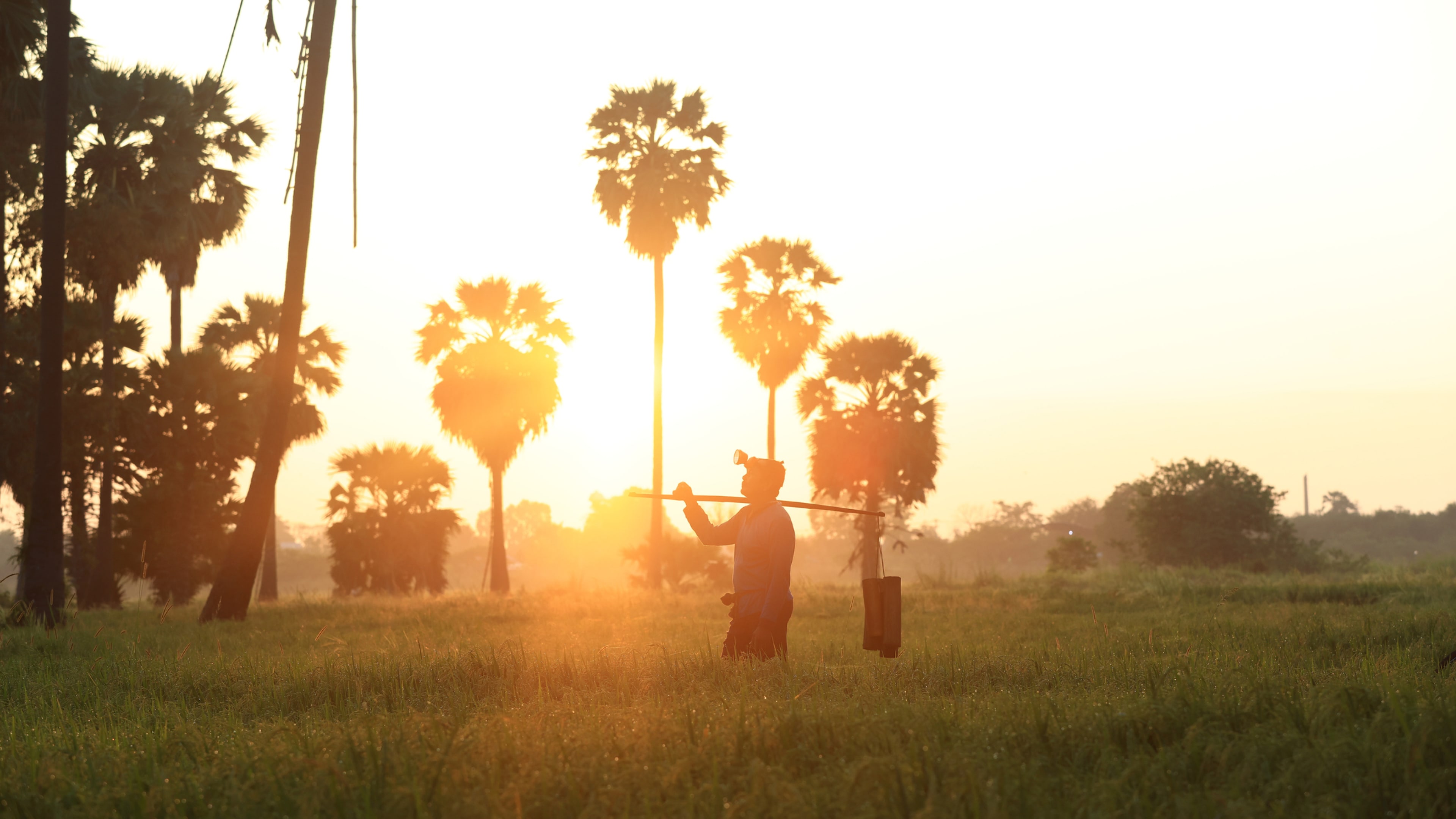How traditional Islamic giving can play a role in the future of aid

Islamic finance could be the answer to pressing humanitarian issues, from drought relief to development. Image: Reuters/Muhammad Hamed
Humanitarian disasters have led to an unprecedented level of forced displacement.
The United Nations High Commissioner for Refugees reports more displaced persons now than at any time since the end of the Second World War. We are witnessing, as never before, large movements of people, which demonstrate how interconnected our world is: a civil war in the Middle East has reached the shores of Europe.
Given the complexity and likely continuation of current conflicts, by 2030 an estimated 80% of the world’s extreme poor will live in areas defined as fragile – the majority of which will be Muslim-majority countries, or states with significant Muslim populations.
Climate change is also a humanitarian issue, and emerging as a key driver of displacement.
There’s an overwhelming need for capital to help fragile states battle everything from widespread food and water insecurity to the fallout from natural disasters.
In 2016, a high-level panel commissioned by then UN Secretary-General Ban Ki-moon estimated a humanitarian financing deficit of $15 billion – and the gap is widening each year. Last year, only 58.5% of requested humanitarian funding needs were met.
UN Under-Secretary-General for Political and Peacebuilding Affairs, Rosemary DiCarlo, warned the Security Council earlier this year, observing that “climate change has heightened competition for diminishing land, forage and water resources in certain countries, fuelling tensions between herders and farmers, compounding socioeconomic exclusion and raising the chances of youth being recruited into armed groups”.
With the huge gap in humanitarian funding, coupled with the immense need, innovative financing models are starting to play a critical role as it becomes clear that no single actor can plug the deficit.
In the humanitarian sector, international aid organizations are looking to new sources of capital and utilizing Islamic social finance for humanitarian projects.
Islamic social finance was developed in adherence to the Sharia principles of socioeconomic justice, equality and collective prosperity. Through mobilization of tools such as Zakat, Waqf and Sadaqah, it can help deliver much-needed financing for the humanitarian challenges caused by climate change.
Zakat – wealth tax and a means of wealth distribution – is thought of as harmonizing the relationship between the individual and public interest (“maslaha”). Each year, Muslims are required to donate 2.5% of one year’s total cumulative wealth to the poor in the form of Zakat. Last year alone, approximately £300 million worth of Zakat was donated by Muslims in the UK. The Islamic Development Bank estimates the global value of Zakat to be between $232 billion and $560 billion annually.
Waqf is an endowment to a religious, educational or charitable cause, most frequently used to build schools, hospitals or religious institutions. Given its communitarian nature, Waqf is often used to fund social projects and services.
Sadaqah is voluntary charity given on an ad-hoc basis. Think of putting coins into a charity donation box. Due to its irregular nature, Sadaqah is often difficult to calculate, because it varies from individual to individual and depends on their disposable income and level of generosity.
Islamic social finance tools such as Zakat, Sadaqah and Waqf have enormous potential to be leveraged and scaled.
For example, in Indonesia, Zakat has been used to fund renewable energy projects in rural areas. The country’s national Zakat collection agency, BAZNAS, used approximately $350,000 to finance the building of a power plant in the province of Jambi, to help to provide much-needed electricity for residents in deprived villages.
Through Zakat vehicles, funds being raised are beginning to be deployed strategically for climate-related humanitarian and developmental impact.
Kenya is a case in point.
Last year, the International Federation of the Red Cross and Red Crescent Societies (IFRC) used Zakat collected in the Malaysian state of Perlis to fund a drought-assistance programme in the Kenyan county of Kitui, pioneering a sustainable humanitarian Zakat initiative.
The aim of the programme was to assist communities affected by climate change-induced drought in southern Kenya, using a two-level approach to tackle both water access and cash crop problems concurrently.
The programme provided access to clean water and livelihood opportunities to the county residents by using Zakat funds to repair boreholes used to extract water and dig new ones. In addition, green gram seeds (a regional staple) were purchased using Zakat funds and distributed to local families for farming purposes. On average, each family received 2kg of seeds, which had the capacity of yielding 180kg of harvest.
The results speak for themselves. In total, $1.2 million in Zakat funding was channelled to Kitui county. Not only was a total return of approximately $20 million generated from green gram crop sales, but access to much-needed clean water was made available to 175,000 families.
Given that out of the two-thirds facing acute hunger in our world, 62.5% are those of member states of the Organization of Islamic Cooperation, the example of Kenya’s Kitui county demonstrates that Islamic social finance can provide sustainable solutions to food and water problems.

Islamic social finance was highlighted at the World Humanitarian Summit in 2016 as an important source of funding. Its full potential, however, is yet to be unlocked.
The examples of Indonesia and Kenya show how tools such as Zakat can be mobilized to address climate change-induced humanitarian problems. More importantly, they provide models on how to move from a charity-based “disaster relief” approach to long-term development, bringing us closer to achieving the United Nations’ Sustainable Development Goals.
Policymakers and international humanitarian organizations need to start considering Islamic social finance as a viable option. In an era when climate change is unprecedentedly stretching humanitarian response mechanisms, the traditional modes of giving enshrined in Islamic culture offer a way forward.
Don't miss any update on this topic
Create a free account and access your personalized content collection with our latest publications and analyses.
License and Republishing
World Economic Forum articles may be republished in accordance with the Creative Commons Attribution-NonCommercial-NoDerivatives 4.0 International Public License, and in accordance with our Terms of Use.
The views expressed in this article are those of the author alone and not the World Economic Forum.
Stay up to date:
Humanitarian Action
Forum Stories newsletter
Bringing you weekly curated insights and analysis on the global issues that matter.
More on Resilience, Peace and SecuritySee all
Shoko Noda and Kamal Kishore
October 9, 2025


